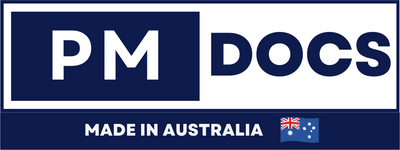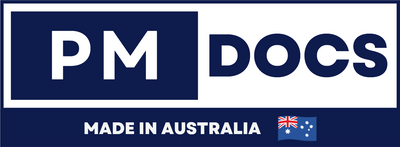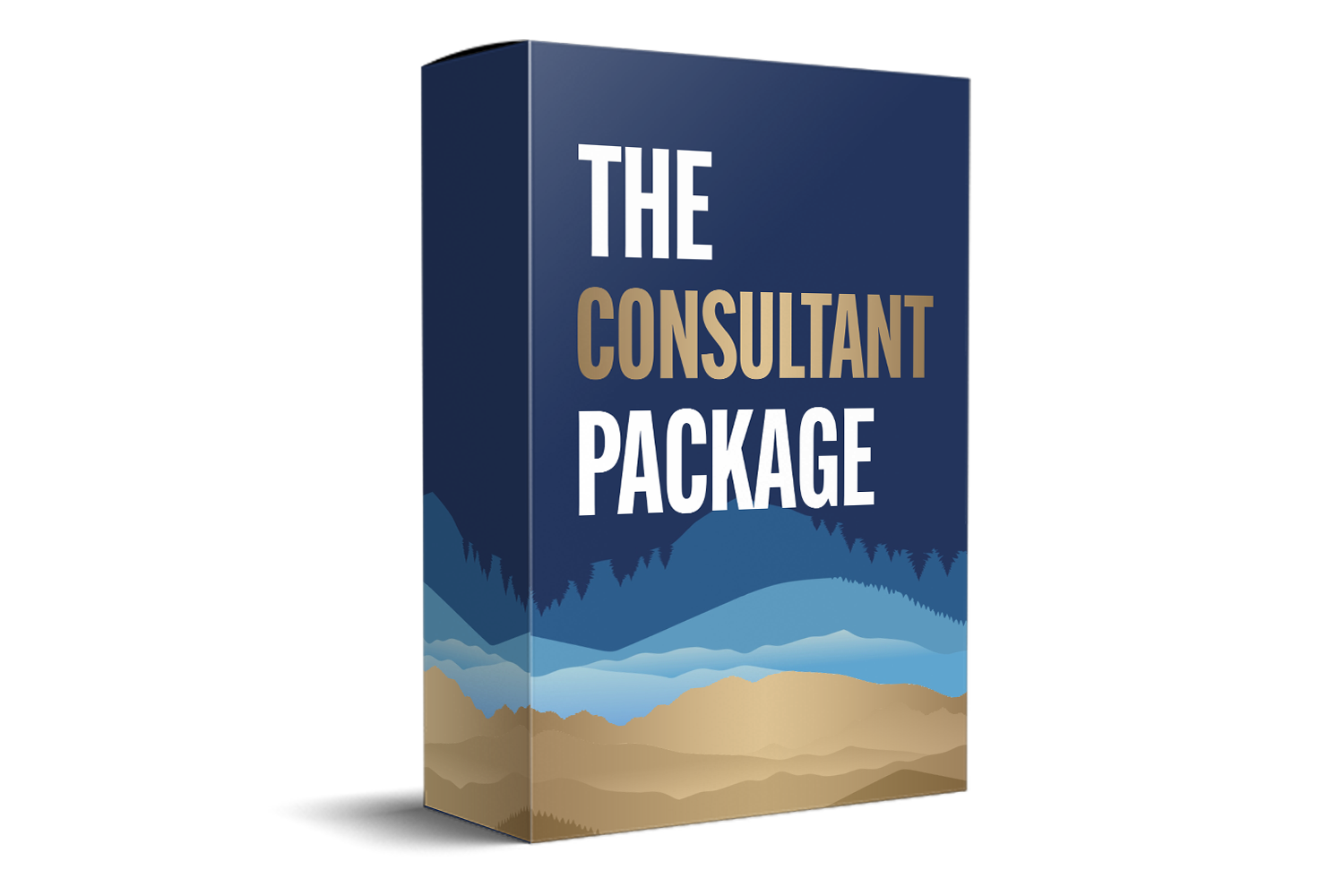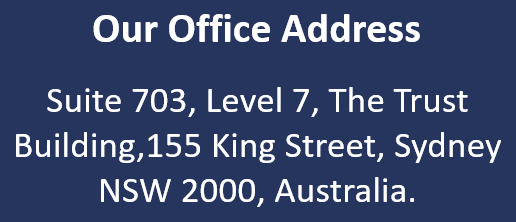Top ISO Certification Bodies In Australia (2025 List)
Navigating Excellence: Your Guide To The Top ISO Certification Bodies In Australia (2025 List)
In today's competitive global landscape, achieving and maintaining high standards is not just an aspiration but a necessity for business success. For Australian organisations, ISO certification stands as a testament to their commitment to quality, environmental responsibility, information security, and occupational health and safety. It's a powerful tool that enhances credibility, opens new market opportunities, and fosters operational efficiency.

However, the journey to ISO certification isn't just about implementing the standards; it's also about partnering with the right certification body (CB). Choosing an accredited, reputable, and experienced CB is paramount to ensuring your certification holds true value and is globally recognised.
This blog post provides an essential guide to the top ISO certification bodies in Australia for businesses looking to embark on or continue their certification journey in 2025. We'll explore what makes a good CB, key factors to consider, and highlight leading organisations ready to support your pursuit of excellence.
Understanding ISO Certification Bodies And Accreditation
Before diving into the list, it's crucial to understand the role of a Certification Body and the significance of accreditation.
What is an ISO Certification Body (CB)? An ISO Certification Body (also known as a Registrar or Certification Registrar) is an independent organisation that audits a company's management system against the requirements of specific ISO standards (e.g., ISO 9001 for Quality Management, ISO 14001 for Environmental Management, ISO 27001 for Information Security). If the company meets the standard's criteria, the CB issues a certificate, signifying compliance.
The Importance of Accreditation Accreditation is the formal recognition by an authoritative body that a certification body is competent to carry out specific certification tasks. In Australia and New Zealand, the primary accreditation body is JAS-ANZ (Joint Accreditation System of Australia and New Zealand). When a CB is JAS-ANZ accredited:
- It assures the market that the CB is technically competent and impartial.
- It provides confidence in the certificates issued, which are then internationally recognised.
- It ensures the CB operates with integrity and adheres to rigorous auditing standards.
Why choose an accredited CB? Choosing a JAS-ANZ accredited CB is non-negotiable. Without accreditation, your ISO certificate may not be recognised by potential clients, regulatory bodies, or international partners, rendering your investment largely ineffective. It’s the stamp of authenticity that validates your organisation’s commitment to international best practices.
Key Factors To Consider When Choosing A Certification Body
Selecting the right CB is a critical decision that can significantly impact your certification journey and the ongoing value of your ISO systems. Here are the top factors to evaluate:
-
JAS-ANZ Accreditation is Paramount: As discussed, this is the first and most important criterion. Always verify a CB's accreditation status directly on the JAS-ANZ website.
-
Scope of Accreditation: Ensure the CB is accredited to certify the specific ISO standard(s) relevant to your business (e.g., ISO 9001, ISO 14001, ISO 45001, ISO 27001) and within your industry sector.
-
Industry Expertise: A CB with auditors who understand your industry's nuances and challenges can provide more valuable insights during the audit process, making it a truly beneficial experience rather than just a compliance exercise.
-
Reputation and Track Record: Research the CB's standing in the market. Look for longevity, positive client testimonials, and a strong history of successful certifications. A well-respected CB adds more weight to your certification.
-
Customer Service and Support: Evaluate their responsiveness, clarity of communication, and willingness to answer your questions. A good CB acts as a partner, guiding you through the process, not just an auditor.
-
Cost and Value for Money: While cost is a factor, it should not be the sole determinant. Compare quotes, understand what's included (audit days, travel expenses, certificate fees), and assess the overall value. A cheaper option might lack the expertise or support you need.
-
Audit Approach and Philosophy: Some CBs have a more prescriptive approach, while others focus on continuous improvement and business value. Choose a CB whose methodology aligns with your organisational culture and goals.
-
Geographic Coverage: If you have multiple sites across Australia or plan international expansion, ensure the CB has the capacity and accreditation to serve all your locations.
- Auditor Competence and Style: While you might not choose your specific auditor, inquire about the CB's process for auditor allocation. Professional, knowledgeable, and constructive auditors can significantly enhance the audit experience.
Top ISO Certification Bodies In Australia (2025 List)
Based on their reputation, accreditation status (JAS-ANZ), global reach, industry expertise, and breadth of services, the following certification bodies are highly regarded in Australia for businesses planning their ISO certification in 2025. This list is not exhaustive but represents leading choices across various sectors.
Leading Global And Local Providers
Many of these bodies have a strong global presence coupled with dedicated local teams in Australia, offering a blend of international recognition and local understanding.
-
SAI Global (now Intertek SAI Global): A long-standing and highly respected name in Australia, known for its extensive range of certification services and deep understanding of Australian business needs.
-
BSI (British Standards Institution): As the world's first national standards body, BSI has a strong heritage and global presence, offering comprehensive certification across numerous ISO standards.
-
SGS: A world leader in inspection, verification, testing, and certification, SGS offers an unparalleled global network and expertise across virtually all industries.
-
TÜV SÜD: Renowned for technical excellence and impartiality, TÜV SÜD provides certification services with a strong focus on safety, security, and sustainability.
-
DNV: With roots in maritime and energy, DNV has expanded its expertise to management system certification, known for its robust audit process and focus on risk management.
-
Lloyd's Register: Another organisation with a rich history in assurance, Lloyd's Register provides a range of management system certification services, particularly strong in high-risk industries.
-
Bureau Veritas: A global leader in testing, inspection, and certification (TIC) services, Bureau Veritas helps clients meet the challenges of quality, safety, environmental protection, and social responsibility.
-
Global-Mark Pty Ltd: An Australian-owned and operated certification body, Global-Mark offers a client-focused approach with a strong emphasis on practical, value-adding audits for local businesses.
- QMS Certification Services: Another prominent Australian-based CB, QMS is known for its responsive service and practical approach to helping businesses achieve and maintain certification.
Comparison Table: Top ISO Certification Bodies In Australia (2025)
| Certification Body | Key Strengths / Focus Areas | Popular ISO Standards Offered (Examples) | JAS-ANZ Accreditation |
|---|---|---|---|
| Intertek SAI Global | Market leader in Australia, broad scope, strong local presence | ISO 9001, 14001, 45001, 27001, 22000, Quality Schemes | Yes |
| BSI | Global thought leader, original standards body, extensive training | ISO 9001, 14001, 45001, 27001, 22301, 50001 | Yes |
| SGS | Global reach, diverse industry expertise, extensive portfolio | ISO 9001, 14001, 45001, 22000, 27001, Automotive, Medical | Yes |
| TÜV SÜD | Technical excellence, safety & security, product certification link | ISO 9001, 14001, 27001, IATF 16949 (Automotive), Cybersecurity | Yes |
| DNV | Risk management, digital assurance, strong in maritime & energy | ISO 9001, 14001, 45001, 50001, 27001, Supply Chain | Yes |
| Lloyd's Register | High-risk industries, technical expertise, marine & industrial focus | ISO 9001, 14001, 45001, 22000 (Food Safety), AS/NZS 4801 | Yes |
| Bureau Veritas | Global TIC leader, wide range of services, strong audit capabilities | ISO 9001, 14001, 45001, 22000, 27001, Sustainability Standards | Yes |
| Global-Mark Pty Ltd | Australian-owned, client-focused, practical audit approach | ISO 9001, 14001, 45001, 27001, NDIS, Environmental, Energy | Yes |
| QMS Certification Services | Australian-owned, responsive, value-adding approach for local businesses | ISO 9001, 14001, 45001, 27001, NDIS, AS/NZS 4801 | Yes |
Note: The "Popular ISO Standards Offered" column provides examples; these bodies typically certify a much wider array of ISO and other international/national standards. Always check their specific scope of accreditation for your exact needs.
The Certification Process: A Brief Overview
Regardless of which CB you choose, the general path to ISO certification typically involves these stages:
-
Initial Enquiry & Quote: Contacting various CBs to discuss your needs and receive proposals.
-
Application: Once you select a CB, you submit a formal application.
-
Stage 1 Audit (Document Review): The CB reviews your documentation (e.g., quality manual, procedures) to ensure your system design meets the standard's requirements on paper.
-
Stage 2 Audit (On-site Assessment): Auditors visit your premises to assess the implementation and effectiveness of your management system in practice.
-
Certification Decision: If your system is deemed compliant, the CB will issue your ISO certificate.
-
Surveillance Audits: Annual audits are conducted to ensure ongoing compliance and continuous improvement.
- Re-certification Audit: Typically every three years, a comprehensive audit is performed to renew your certification.
Tips For A Successful ISO Certification Journey
Embarking on ISO certification is a strategic business decision. Here are some tips to ensure a smooth and successful journey:
-
Secure Top Management Commitment: This is crucial. Without leadership buy-in, any management system will struggle.
-
Understand the Standard: Don't just tick boxes. Truly understand the principles and requirements of the ISO standard you're implementing.
-
Appoint an Internal Champion: Designate a dedicated person or team to lead the implementation process.
-
Involve All Employees: ISO is not just for management; it's a company-wide effort. Educate and involve staff at all levels.
-
Perform Thorough Internal Audits: Conduct internal audits to identify non-conformities and areas for improvement before the external CB audit.
-
Conduct a Management Review: Regularly review the performance of your management system to ensure its effectiveness and suitability.
-
Focus on Business Improvement: View ISO as a framework for continuous improvement, not just a compliance exercise.
- Choose the Right Certification Body: As detailed above, an appropriate CB is a partner in your success, not just an auditor.
Conclusion
Achieving ISO certification is a significant milestone that demonstrates an organisation's dedication to excellence, robust processes, and customer satisfaction. For Australian businesses looking ahead to 2025, carefully selecting an accredited, experienced, and reputable ISO certification body is a foundational step towards unlocking these benefits.
By considering the factors outlined and exploring the leading CBs listed, you can make an informed decision that best aligns with your organisational goals and sets you on a path to sustained success and international recognition. Start your due diligence today, contact these bodies, and embark on your journey towards certified excellence.





